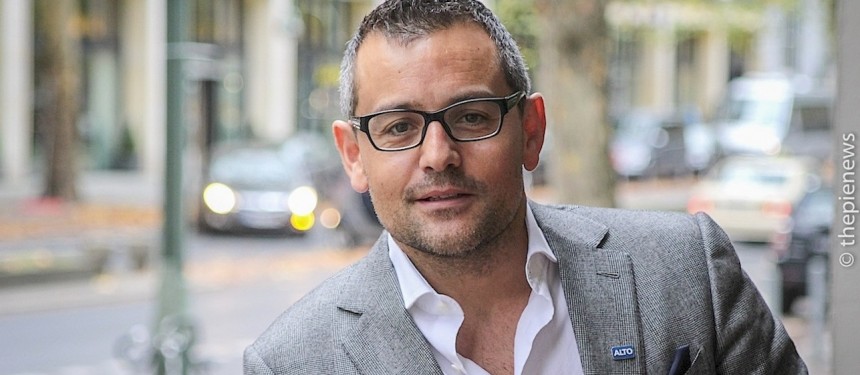AM: Ultimately ALTO is a member organisation, it’s member-led, and it needs to be an organisation that gives back and also takes. So it’s about sharing, it’s about getting members together from the entire industry, not just schools huddling up and saying ‘what are the agents talking about?’ or agents huddling up and saying ‘what are the schools talking about?’ but actually bringing everybody together, including associations and suppliers to our industry and having meaningful discussions.
News and business analysis for Professionals in International Education
Have some pie!
Andrew Mangion, Executive Chairman, EC

The PIE: It is a unique forum..
AM: It’s about bringing the leaders together, knocking our heads together and saying ‘what are the critical issues going to be 5, 10 years down the line? Because the reality is, our front-end managers are really looking at the next 90 days. They’re not looking at the next 9 years. Whereas it has to be the leaders of organisations looking at the medium or long term.
The PIE: You were the CEO of EC and then became Executive Chairman. Is that so you could spend more time on strategy?
AM: That’s a good question. It’s a question that many people ask me. I first thought about handing over the CEO role 6 years ago. At the time I was just 37. It’s pretty young to think ‘I should move on’. And the reason is this: I’m a firm believer that leadership is not a sprint, or even a marathon. I believe that leadership is a relay: leaders who are lined up to hand the baton to the next person, who will then run the next distance. Leadership is very intense emotionally and physically.
“I’m a firm believer that leadership is not a sprint, or even a marathon. I believe that leadership is a relay”
I don’t think leadership is something one can hang on to for decades and decades. As long as one has the energy, the vision and the engagement to handle that, then that’s great. And so I believe in succession, and that’s why I wanted to pass onto a new CEO, who I believed was the right person to handle the next part of EC’s journey.
It has freed up my time to focus on strategy, focus on developing an non-executive board of directors, which I now have today, focussing on more business development M&A work, mergers and acquisitions, which since I’ve been Executive Chairman we’ve seen a lot of at EC. You can’t be at the coalface and then at the same time pulling yourself up to 30,000 feet and looking at the big picture.
The PIE: Looking at the big picture, where do you see EC developing from here on in?
AM: I see EC continuing to do what it does and doing it better, expanding in the markets it’s already in. Eventually yes, moving into new geographies.
“When you get into the in-country model you’re not looking at student weeks any more, you’re looking at student hours”
I wouldn’t exclude in-country. It’s a bit of a different model. It’s one thing when you’ve got students committing 20 hours a week and 6 weeks a year to really dedicating themselves to learning English. When you get into the in-country model you’re not looking at student weeks any more, you’re looking at student hours. And that’s where you get less engagement, students may commit to 2, 4 hours a week to you. It can be a struggle to bring those students back after they’ve finished a 12-week programme, for example. I think an in-country model is more of a sales and marketing engine, less of an academic engine, possibly.
The PIE: What did you study? Did you go to university?
AM: I went to university in the US. When you’re 17 living on a little island like Malta all you can think about is getting out. So I studied in a small liberal arts college in Iowa. I double majored: I studied international business management and I studied French. So I know what it’s like to learn a language, I speak 4 languages, and I know what it’s like when you’re struggling to learn a language.
“I know what it’s like when you’re struggling to learn a language”
I spent 7 years, both at school and university learning French, thinking that I could speak French. I actually realised that I didn’t know French when I went to live in Paris and after a year I could speak French fluently. So it really convinced me that full immersion actually works.
The PIE: Has that experience informed your student care and welfare?
AM: EC first and foremost sees itself as a customer service organisation, before even an academic organisation, and I say that because if we are able to care for our clients and make them feel like they are in a nurturing environment, then it’s so much easier for them to learn.
Still looking? Find by category:


